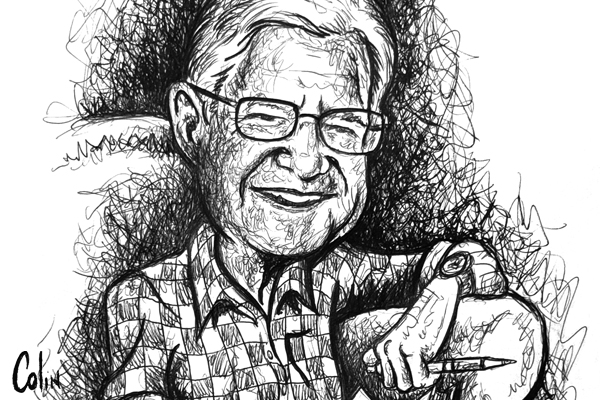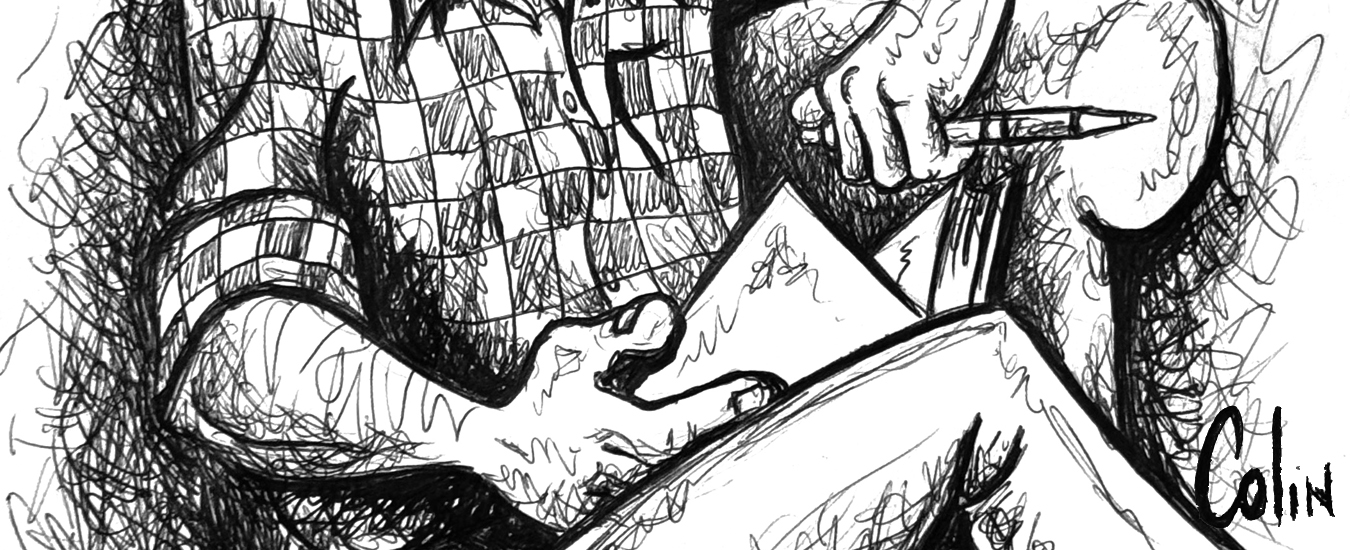The tall man in the top hat, sparklers jutting like flashing antennae, held a 1.5-metre, gold-fringed star-spangled banner high above his head. He smiled broadly and cried, “Welcome to A-mur-ica, you little Canuck.”
It was July 1976, during the U.S. bicentennial birthday bash. I was 15 and had come for an adventure, which so far wasn’t working out the way I’d hoped.
The crossing from Halifax aboard a 22-metre-long brigantine, a steel-hulled bathtub built in 1952 to train Canadian naval cadets, now seconded to a maritime tour operator, promised “authentic Revolutionary romance” (whatever that was) minus the perils. What I got instead were five-metre seas and gale-force winds.
After nine days of that, I was lying on mercifully solid ground in Salem, Massachusetts, facing the sky and wondering: Do clouds look any different here? When was the last time I ate?
“Looks like you could use a meal,” Mr. Sparklers said, stooping to laugh.
What I really needed was a train ticket home. With only a third of the round trip to New York Harbor’s international “sail pass” complete, I was staring down another 18 days of misery at sea. And for what? A blurry glimpse of U.S. President Jimmy Carter sharing a stage with movie stars outside the Statue of Liberty?
This was supposed to be a formative experience. “Come on, it’ll be fun,” my father had said, likely forgetting how much “fun” I’d had the summer before when he enrolled me in a competitive swimming camp. Barfing had been part of that adventure too.
I was determined not to let him down, but already knew I had.
“I’ve got money,” I muttered to Mr. Sparklers, eyeing his pickup truck. He grinned and palmed four of my crisp $5 bills. “I can take you as far as the Greyhound station,” he said, tossing his top hat into a flowerpot. “From there, you’re on your own.”
The excursion was all expenses paid, but my folks had given me spending money. Sparklers had cost me $20. The bus to Montreal was $17.50. From there, the Ocean Limited train would take me non-stop to Halifax. But how much was that?

Through the bus window, Route 1 bled into smaller roads. Towns drifted past like faded postcards: Wenham, Topsfield, Concord. Gas stations slumped at crossroads, rusted pumps leaning like old drunks. Sun-bleached billboards pitched miracle products no one bought anymore — hair pomade, weight-loss pills. Bicentennial flags hung limp in the heavy air.
I looked at my wallet. It suddenly looked like a toy. The only thing missing was vinyl stitching and a carved cowboy hat. Yippee ki yay, you little Canuck.
Midway through Vermont, the driver stopped at a roadside diner. The neon sign buzzed and flickered. Inside, the coffee came in thick mugs, each pour promising absolution. Amid the hum of truckers and clink of cutlery, hot apple pie with cheddar tasted like rescue.
My stash was low now. Enough, maybe, for one more meal. From here, every stop was a decision. Eat or save?
I stared at the passing dark, thinking of Montreal. I pictured a conductor’s hand waiting for a fare I might not have. The bus moaned through the night, gears grinding toward the border. I closed my eyes and counted backwards from nothing.
The train hissed and sighed. Halifax.
I stepped off. My father was already there, arms folded, eyes scanning, face tight. Not angry, just searching.
“I thought you might regret it,” he said. “Not seeing it through. Not having the adventure.”
I shrugged and looked away, down toward the splintered wharves that fell into the sea and, beyond that, into a world full of promise and peril.
Adventure?
I had travelled to America with despair in my heart and my pockets all but empty and found my own way home owing no one an apology or a single red dime.
“I’ll be fine,” I said, smiling broadly.
